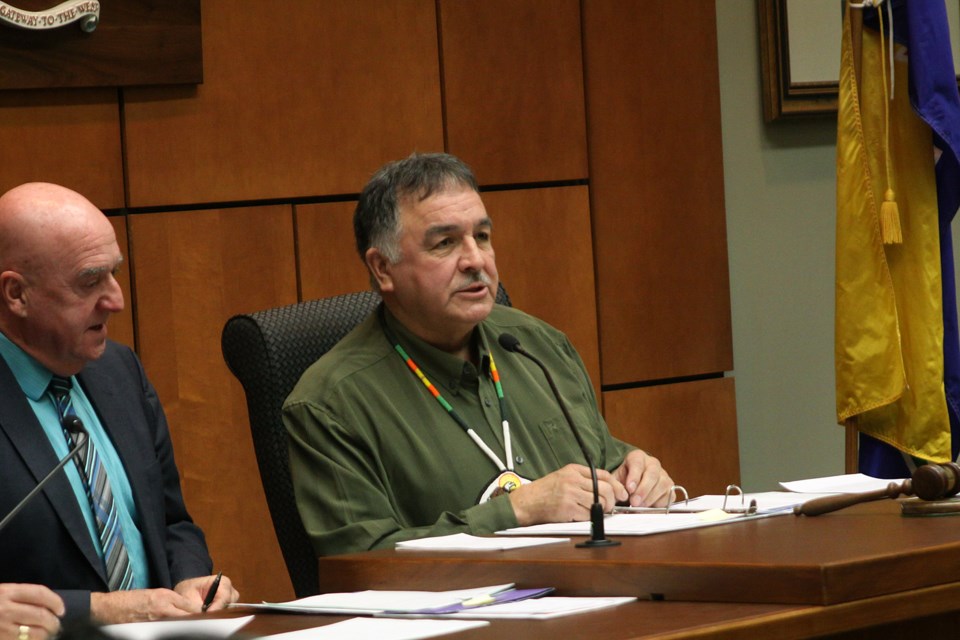THUNDER BAY – Fort William First Nation “is not asking anymore” for Thunder Bay to relinquish taxing authority on 650 hectares of land that was appropriated more than a century ago.
The community’s leaders passed a band council resolution within the last few months to officially declare it would not recognize the city’s municipal taxation authority on the land and Fort William First Nation chief Peter Collins told Thunder Bay city council “we’re not asking anymore.”
“Fort William is opposed to any tax levied against its community,” Collins said in an interview following the Wednesday night special council meeting between the two communities.
“If you look at the historical documents and the taking of our land, it was wrong. We did not relinquish or give up our authority on that land. Any law that the province or the municipality has that says they can tax our land, we disagree.”
The lands, which extend from the current Totem Trailer Court and extends east along the Kaministiquia River to include Chippewa, were the subject of the largest appropriation of land by a railway company in Canadian history.
Community members were forced away from their traditional settlement along the banks of the river, with some relocating to Squaw Bay and others moved to Mountain Village. Buildings were torn down, property was abandoned and the cemetery was uprooted with bodies exhumed and hauled to the new location.
“It’s time. Time for that reconciliation. Reconcile that land back to its rightful owners and that’s us, the community of Fort William and the 2,500 members that have been so dearly waiting for quite some time,” Collins said.
Fort William First Nation officially signed a $99 million settlement with the federal government in 2016 as the culmination of a 17-year land claim negotiation process, but the land still falls under the taxing authority of the city and province.
As of March 2017, the Fort William Development Corporation had accumulated $5.7 million in tax arrears to the city since 2007.
City manager Norm Gale said administration was looking into what can be done, but did not provide details on specific options.
“The municipality does not set this law and it is not a municipal law,” Gale said. “The municipality is subject to Ontario law and Ontario law requires the municipality to collect the tax. Having said that, in the spirit of friendship and in the spirit of reconciliation administration will and is exploring non-legal remedies to this significant issue.”
Collins was optimistic that there is a mutually agreeable answer, though he made it clear the matter could make its way to a courtroom if the city does not cede the taxing authority.
“We can solve this thing and our administrations can walk away with our hands held high and not a cost to each of our organizations,” Collins said. “We can do that without going through a litigation process.”
The chief said he has also raised the issue with both Indigenous Affairs Minister David Zimmer and Municipal Affairs Minister Bill Mauro to put the province on notice.
